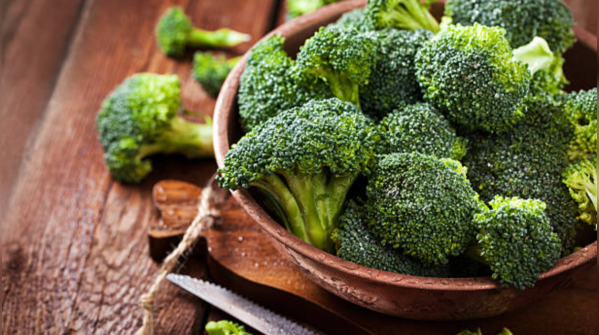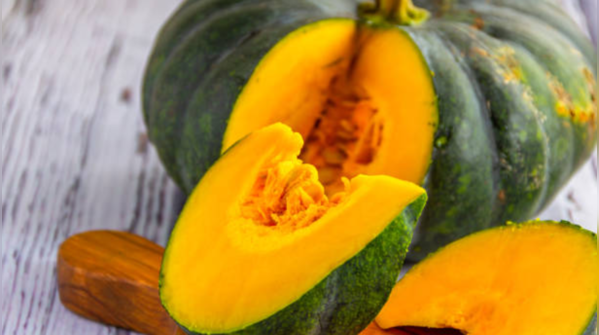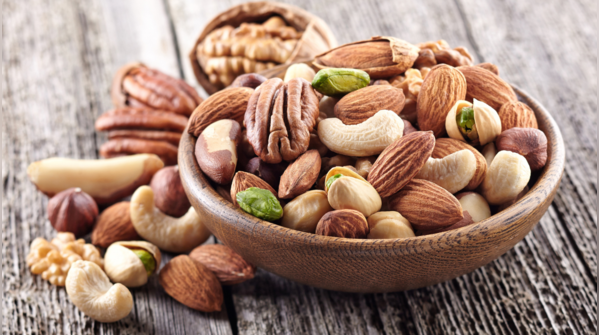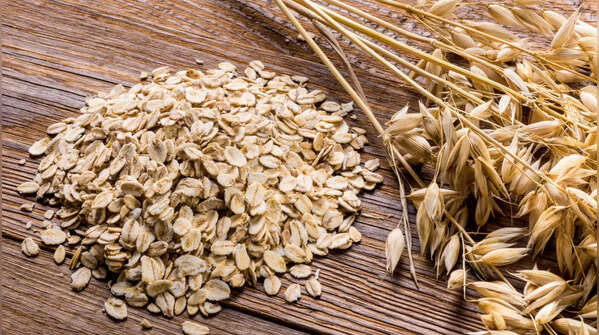Maintaining stable blood sugar levels is essential for overall health, especially in preventing conditions like type 2 diabetes, heart disease, and obesity. Fluctuations in blood sugar can result in energy dips, mood changes, and potential long-term damage to the eyes, kidneys, and nerves. While factors such as body weight, physical activity, stress levels, and genetics play significant roles, incorporating a healthy diet and regular exercise can be instrumental in managing blood sugar. Here are five foods that can naturally assist in lowering blood sugar levels.

Broccoli, a cruciferous vegetable, stands out as a rich source of fiber and antioxidants. It contains sulforaphane, an isothiocyanate known for its blood sugar-lowering capabilities. Sulforaphane is produced when broccoli is chopped or chewed, triggering an enzyme reaction. Research from 2019 indicates that sulforaphane found in broccoli extract exhibits antidiabetic properties. Studies involving both animals and humans have demonstrated that it enhances insulin sensitivity, reduces blood sugar, and lowers oxidative stress markers. The high fiber content in broccoli also contributes to slower carbohydrate absorption, preventing rapid blood sugar spikes.

Pumpkin offers more than just visual appeal. This vibrant vegetable has a low glycemic index, meaning it doesn't cause rapid increases in blood sugar. Rich in fiber and antioxidants, pumpkin has traditionally been used as a diabetes remedy in various cultures. It contains polysaccharides that may boost insulin secretion and improve glucose metabolism. A 2019 study revealed that pumpkin extracts and powders can significantly decrease blood sugar levels.

Nuts are an excellent choice for maintaining steady blood sugar levels. Incorporating almonds, walnuts, and pistachios into your diet can be beneficial, as they are low in carbohydrates and rich in healthy fats, fiber, and protein. A 2018 study involving individuals with type 2 diabetes showed that consuming peanuts and almonds as part of a low-carb diet reduced both fasting and post-meal blood sugar levels. Regular nut consumption is associated with improved glycemic control in individuals with diabetes. The healthy fats present in nuts slow down digestion, which helps in stabilizing blood sugar levels. A small portion of unsalted nuts can be a healthy snack or addition to salads, providing these benefits without excess calories.

Oatmeal can be a great addition to your diet if you're looking to regulate blood sugar. Oats have a low glycemic index and contain beta-glucan, which can reduce glucose and insulin responses after meals. Oats can improve insulin sensitivity, lower blood lipid levels, and regulate blood sugar. A 2021 analysis indicated that carbohydrate-rich meals containing beta-glucan, a soluble fiber found in oats and barley, led to lower post-meal blood sugar levels compared to meals without beta-glucan. Opt for steel-cut or rolled oats instead of instant varieties to maximize nutritional benefits.

Okra is a source of blood sugar-lowering compounds, including polysaccharides and flavonoid antioxidants. Its unique slimy texture comes from mucilage, a soluble fiber that slows down sugar absorption in the gut. The seeds are also valuable, containing rhamnogalacturonan, a polysaccharide known for its antidiabetic properties.
Older articles
 Popular Finance YouTuber's Account Hacked, Bitcoin Scam Promoted: Security Lessons Learned
Popular Finance YouTuber's Account Hacked, Bitcoin Scam Promoted: Security Lessons Learned
 Suryakumar Yadav Sidelines After Sports Hernia Surgery: Understanding the Injury, Recovery, and Treatment Options
Suryakumar Yadav Sidelines After Sports Hernia Surgery: Understanding the Injury, Recovery, and Treatment Options
 Ashada Gupt Navratri 2025: Unveiling Dates, Timings, Significance & Secret Rituals
Ashada Gupt Navratri 2025: Unveiling Dates, Timings, Significance & Secret Rituals
 Rishabh Pant's Triumphant Return: LSG Owner Sanjiv Goenka Hails Star's Record-Breaking Performance After Near-Fatal Accident
Rishabh Pant's Triumphant Return: LSG Owner Sanjiv Goenka Hails Star's Record-Breaking Performance After Near-Fatal Accident
 Jadeja's Test Performance Criticized: Ex-India Pacer Aaron Slams Inconsistent Bowling in England Loss
Jadeja's Test Performance Criticized: Ex-India Pacer Aaron Slams Inconsistent Bowling in England Loss
 Microsoft Aims for Foldable Redemption with Novel Hinge Design to Rival iPhone and Android
Microsoft Aims for Foldable Redemption with Novel Hinge Design to Rival iPhone and Android
 Hollywood's Love Affair with India: Iconic Film Locations Revealed
Hollywood's Love Affair with India: Iconic Film Locations Revealed
 India vs. England: Team Preps for Second Test as Bumrah's Absence Raises Workload Management Questions
India vs. England: Team Preps for Second Test as Bumrah's Absence Raises Workload Management Questions
 Shubman Gill's Captaincy Under Fire: Bold Calls Needed After England Test Defeat
Shubman Gill's Captaincy Under Fire: Bold Calls Needed After England Test Defeat
 6 Yoga Poses to Naturally Support Thyroid Function and Hormonal Balance
6 Yoga Poses to Naturally Support Thyroid Function and Hormonal Balance